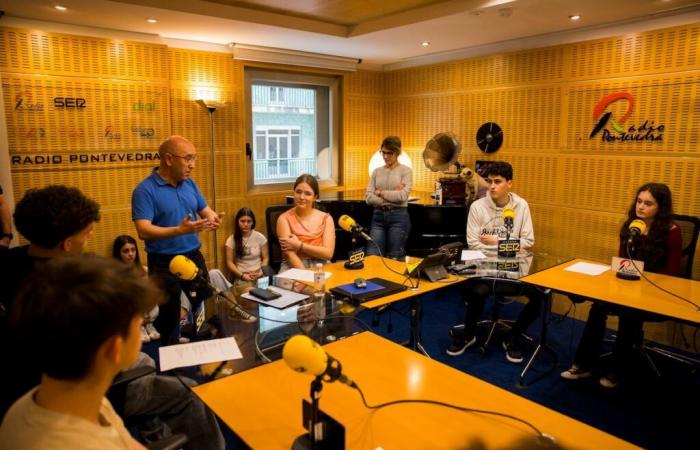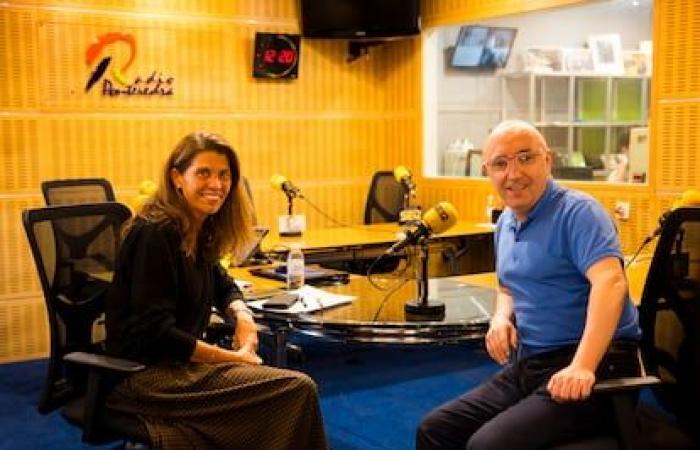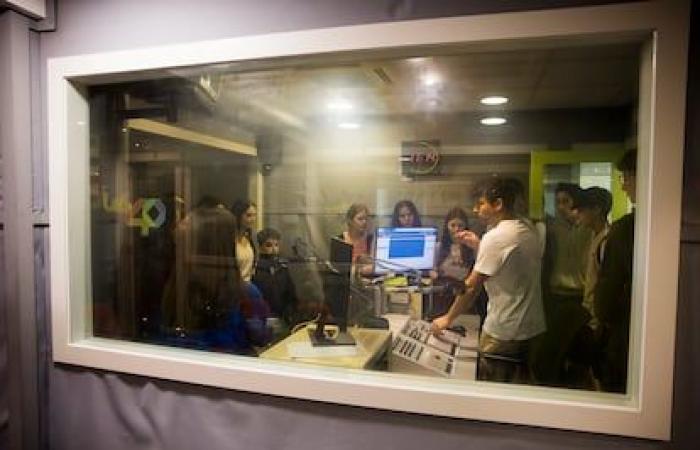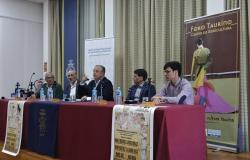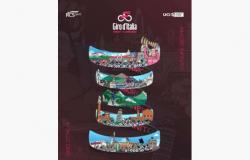The great blackout last Monday transformed the world of adolescents for a few hours. All social networks disappeared from their lives and their connection with the outside saved it a means of communication born in Spain a century ago. “We had never heard the radio for so long,” admit several students from the IES Xunqueira I of Pontevedra. They are visiting Radio Pontevedra Cadena Ser to participate in the school radio project of this station associated with the Prisa group, editor of this newspaper. This morning, two days after the light cut, they learn to move in the waves. To prepare the ladder of a podcast, to locate the listener without sleep, or record a quality sound. “The kids are surely thinking of losing class, but then when they see it, they transform and get hooked. It is brutal,” says journalist Alfonso González, writer of news.
The project aims to teach schools and institutes to use radio as an educational tool. In this first edition, 146 children’s, primary and secondary centers of seven regions of the province of Pontevedra and A Coruña participate. All have a school station, but many did not know very well what to do with those devices and microphones. The success of the program has been such that next year they plan to expand it to Baccalaureate and Vocational Training.
Its promoters highlight all the learning of radio for the youngest. Radio techniques improve their oratory and reading, train their imagination and free them from the fear of expressing themselves in public, they explain. Schoolchildren also learn to work as a team and to investigate a topic. “The Rural Choles are the most involved. And their students read better,” says Mamen Hermida, deputy director of the station and granddaughter of its founder. His grandfather, José Hermida, was one of the pioneers of the radio in Spain and gives name to the awards that will choose the best podcasts of the centers participating in the project. The José Hermida Awards will be delivered at a gala this Friday with the performance of Tanxugueiras.
To the students of the IES to Xunqueira I, González explains how to record interviews on the street with minimal quality: “The micro cannot be attached to the mouth because it saturates; not three meters because it will take ambient sound.” They must prepare three or four fundamental questions. And when they mount the podcast, he warns, the first 30 seconds are crucial: “As you start being a tostón, the listener is going to happen. It is not worth anything that in the 25th minute you have something that is milk. If you notice that you are reading, the brain also disconnects.”
González is concerned about the misinformation he has detected in most boys: “The new generations are very disconnected from the media. They believe that networks [sociales] They are means [de comunicación]. The vast majority are totally uninformed. It is as if they lived in a parallel virtual world. “That is why he defends the need for the media to approach the educational centers.” This gap must be corrected because if not, we will have illiterate people from the point of view of communication, people who will not know what happens around them and will not have a criteria to comment. It is serious. ”
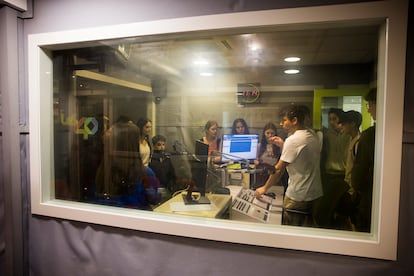
The journalist Luz Espiño is in charge of teaching the boys to take advantage of her voice. The body, exposes, is “as an instrument” and must be well placed, adopting a posture that allows it to sound good. “You don’t have to impose, do not vocalize too much,” he says. He makes a test at microphones with different texts. A poem, an advertising wedge, a sports retransmission, pure and hard news: “Put emotion to the voice, you have to transmit. If you have to tasty, it braces.” Shortly after, they will be released live with the editor Iván Montáns in an interview with those responsible for Playplan, Jordi Lauren and Andrés Lamosa, promoters of the concert that Jennifer López will give on July 8 in Pontevedra to start his Spanish tour.
In full blackout, González found a group of swirling young people around a transistor in a street in the city. Two days later, the students of the institute to whom the workshop taught confesses that with the electricity they discovered that the radio serves much more than listening to music: “I hope 50% continue listening to the radio, but who knows. It will be necessary to see if those batteries of batteries that were bought do not stay with them inside and end up spoiling.” On Radio Pontevedra, they will try to avoid it.

